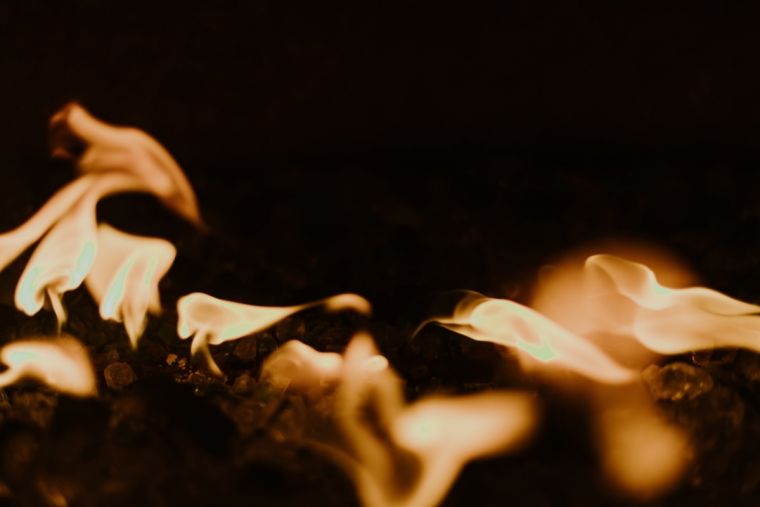Dante 700 years on: the lessons on Hell are as relevant as ever

Odd things start to happen as soon as Dante and Virgil enter hell.
They walk through the famous gates. "Abandon every hope, all you who enter" is inscribed above their heads.
But this immense odyssey, through the very worst of which human beings are capable, is going to morph into a journey of hope. The path will lead them to the glories of God's creation.
It gets you thinking. Why does Dante have to go through hell? Why is there hell? What is its meaning? Is it going to last?
This year, 2020, marks the 700th anniversary of the completion of the great The Divine Comedy. It's one of the wonders of Christianity. It's a text that, like the Bible, shows you something new every time you read it.
Across its three parts – Inferno, Purgatorio, Paradiso – many things are revealed. Sometimes the poem is a diatribe against the medieval church; sometimes a celebration of human qualities; sometimes a warning that every moment of this life matters; sometimes a path that awakens new, unexpected insights about the truths of Christianity.
By the end, it's nothing less than a vision of God, a beatific climax that the journey itself has made Dante capable of. But it doesn't start there.
It was born of a midlife crisis. Its opening lines are as well-known as the words at the entrance to hell: "Midway along the journey of our life / I woke to find myself in a dark wood."
Dante presumed he'd been living his life well enough. He was already a famous poet and respected politician. He appeared to be following Christianity. But suddenly, he wakes up. He realises he has strayed, badly.
Though he'd not noticed, he's been wandering through a wilderness. He's not sure what life is about and surrounding him, pressing in, are threats. The air tastes bitter. He becomes fearful. Truth seems out of reach.
During his lifetime, his beloved city of Florence had collapsed into civil war. The conflict threatened his life and he was banished on pain of death. As it turned out, he was never again to see the gorgeous Duomo, meandering Arno or handsome piazzas. It was a terrible burden to bear, particularly for a poet, because the city-states to which he fledspoke different dialects, held different festivals, sang different songs.
But his crisis was a turning point. It led to his greatest work that still speaks because his age was, in a way, the beginning of our age.
He wrote soon after St Francis of Assisi, whose life had launched a revolution that swept across Europe. Francis was responding to the bloated and weary Christianity of his times, and also to the mechanical ways of life that were spreading as late medieval mercantilism, the precursor to modern capitalism, took people away from the land and forced them into cloth workshops.
Francis's own family had benefited from this economic boom. He gave it up to learn about individual freedom and spiritual joy; a love of nature and care for others.
Dante celebrates these things in the Divine Comedy. He sings of a cosmos that's a festival not a machine. He sees enchanted gardens and mountains, magical rivers and processions. To read his poem is to realise the extent to which human beings can flourish.
But it begins with the recognition of where he's at, in a dark wood. He must descend into hell to understand the full extent of his predicament. Only then can he begin the ascent to heaven.
I think this is the mysterious purpose of hell. It's only when you sense your need of divine grace, and feel that you might lose the divine vision, that a turnaround can begin. You cry out to God, which is to open up too, and become capable of receiving.
It's not an end point. It's a beginning.
Dante and Virgil will meet many souls in hell who seem eternally cut off from God because they are permanently locked up in themselves. But, and without wanting to spoil the story, there are intimations throughout that hell may, in fact, be a stage.
It's horrible and frightening. But pivotal, too.
Questions about the meaning of hell; the limitations of our grasp of Christianity; the all too human tendency to limit ourselves. These are still big questions for us today.
And Dante can speak to them in 2020. After all, the sense that something has gone wrong in our times is now palpable. Mercantilism has morphed into hyper-capitalism. Many struggle not to abandon hope. We're in a spiritual crisis.
We must think again and, like Francis and Dante, do so for ourselves. We must see creation afresh and sense the wealth that God offers. I believe Dante can help us discover it all again, now.
Mark Vernon is posting discussions of the Divine Comedy through 2020, canto by canto. Join him on the pilgrimage at www.markvernon.com/dantes-divine-comedy











